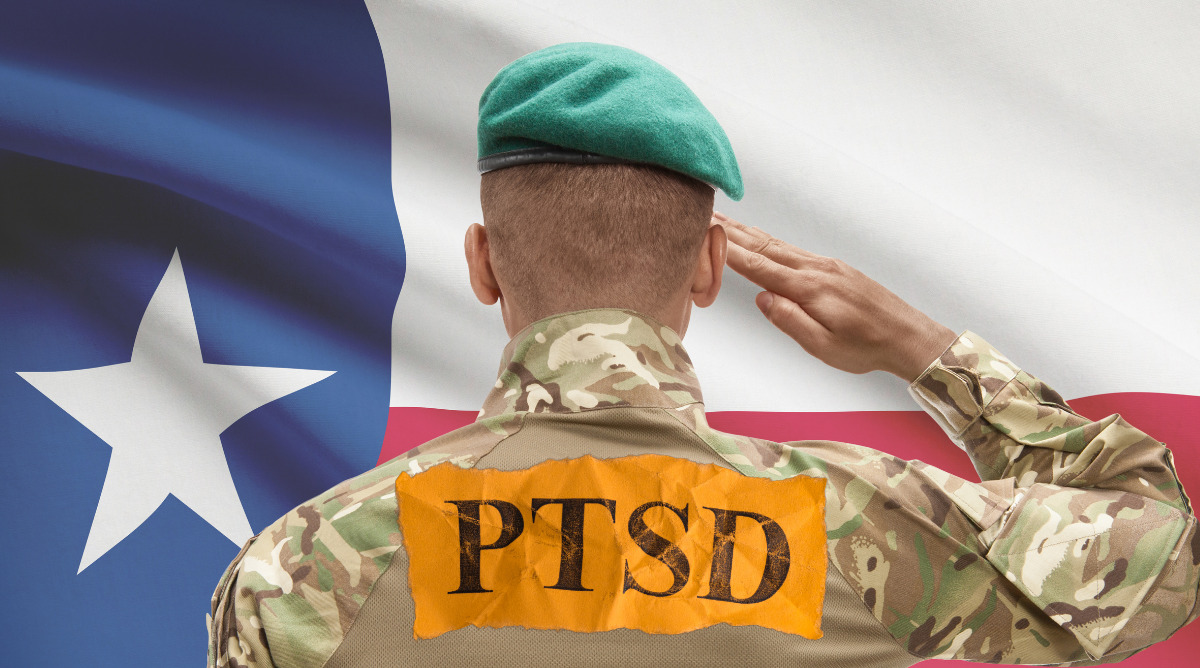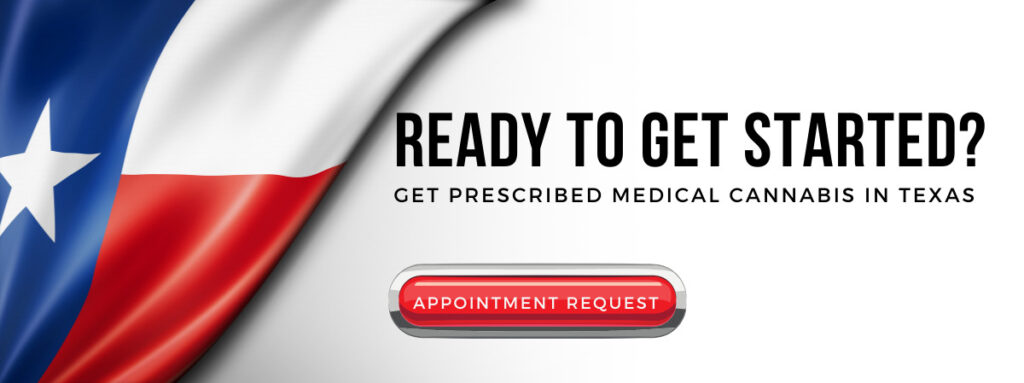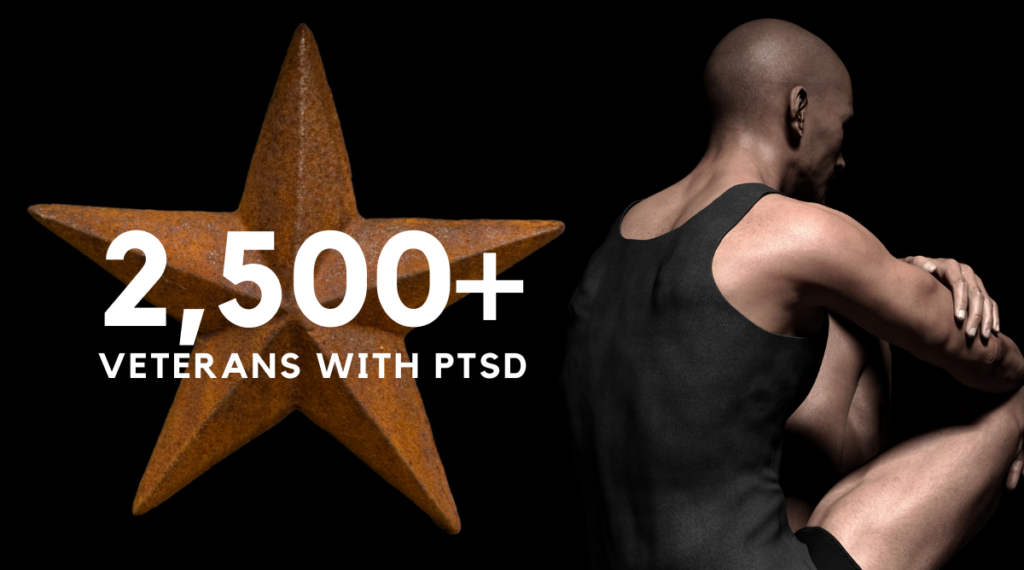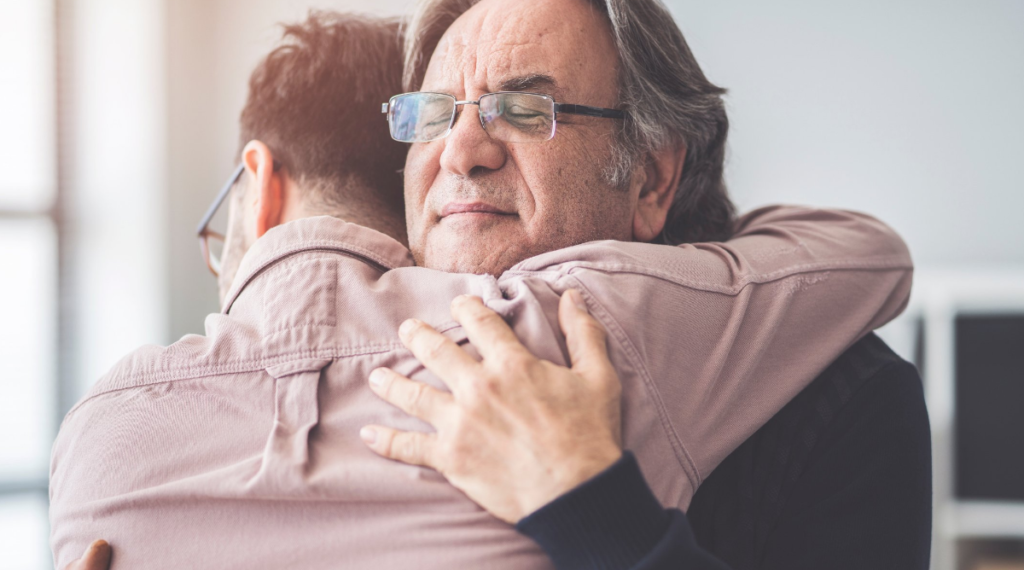
Are you looking for more information about the new qualifying health condition for PTSD Texas?
If you ask someone who lives with a chronic health condition in Texas, the statewide medical cannabis program suffers by comparison. Sitting right next door to Oklahoma doesn’t help either. You know, the state with more medical dispensaries per capita than California?
It is hard not to be bitter when you live in Texas and you drive through Oklahoma. The Boomer Sooner state has a high number of dispensaries. You’d be hard-pressed to not see one no matter where you go in Oklahoma.
Patients that have debilitating health conditions are hoping that Texas adopts a similar model. Maybe not as many dispensaries licensed as there are in Oklahoma. But the availability of higher potency cannabis products is high on the list of priorities for qualifying patients.
What was one of the most important moves by TCUP (Texas Compassionate Use Program) was the inclusion of two more qualifying health conditions. Patients with cancer can now apply for access to doctor-supervised cannabis in Texas. And so can individuals who have been diagnosed with post-traumatic stress disorder (PTSD).

Compared to many states, Texas has a very conservative medical cannabis program. One of the first things those eligible patients realize is that there is no medical card in Texas. You will not be issued a photo ID card to show that you are a patient registered in the Texas Compassionate Use Program.
The Texas medical marijuana program is inching forward slowly and expanding. At the beginning of 2021, the Texas House of Representatives had approved an increase from 0.50% maximum THC potency to 5%. That would have been a great start, although still, low potency compared to other states. The Senate knocked the legislation down to 1% maximum potency.
Lawmakers in Texas feel that there is not enough research to determine a safe potency limit. And regulators also have concerns about promoting addiction, criminal activity, and other problems. Texas is one of the thirty-seven states that have launched a medical marijuana program. But it is also one of the most restrictive programs in the country.
The estimated cost of the Covid-19 health emergency in 2020 for Texas was great. Preliminary reports from the Texas Comptroller estimated that the state experienced a $4.6 billion budget shortfall. Other states experiencing economic loss have adopted not only medical cannabis but also adult-use or legalized recreational use. Texas doesn’t want to rely on cannabis revenues to dig itself out of the red. For the time being, anyhow.
A 2019 poll in March of 2019 indicated that 54% of Texas supported the legalization of adult-use (recreational) cannabis. Not enough support for the interim to push full legalization in the lone star state. And in the Texas Senate, there is staunch opposition to legalizing cannabis. But a great deal of support for decriminalizing it and for mass expungement of personal-use charges.
But times are changing. By June 2021, the University of Texas / Texas Tribune Poll reported that more than 80% of voters in Texas now supported legalized cannabis. In the survey, 31% of voters stated they wanted to see only medical cannabis legalized. And cautiously, only legalized for possession of lesser amounts.
Lawmakers in Texas understand that some people may benefit from the therapeutic use of cannabis. But what they do not agree on is the elevated levels of cannabis potency that other states have permitted. Currently, Colorado is one state that is rethinking laws about cannabis concentrates. The state may cap all cannabis sold in dispensaries to 15% potency. Unless higher concentrations are specialty prescribed by the patient’s physician for compassionate or end-of-life care.
Texas is moving forward cautiously with medical cannabis. There may be a time when there are retail dispensaries open in Texas, but it may not be for several years. And Texas lawmakers feel that cannabinoids at low-potency levels can provide the same health benefits without the risk of impairment, addiction, or intoxication.

In May 2021, less than six thousand (6000) Texans registered with TCUP. In February of 2021, it was estimated that there are more than 2,500 military veterans with post-traumatic stress disorder (PTSD) living in Texas.
23% of Texan veterans with PTSD are considered at-risk for self-harm and experiencing suicidal ideation. That is because the symptoms of post-traumatic stress disorder can be paralyzing. They can cause an individual to withdraw from close relationships.
Some of the most common symptoms of PTSD include:
Allowing post-traumatic stress disorder to become one of the qualifying health conditions in the Texas Compassionate Use Program was a tremendous victory for patients. Life with severe trauma can impact every facet of life.
People with PTSD are hypervigilant or always on the alert for danger. For that reason, many suffer from chronic fatigue. And they can be irritable or moody, which can push supportive people away. The maximum 1% THC medical cannabis available in Texas could benefit thousands of veterans and help them moderate the symptoms of PTSD better.
Psychotropic medications for PTSD include anxiety and depression symptom inhibitors. Conventional treatments for PTSD are not usually effective. And without relief from symptoms, the suicide rate among military veterans has continued to climb.
A diagnosis of PTSD can carry a stigma because the condition is not well understood. And that can also have a negative impact on employment for anyone with severe emotional trauma. Diagnosis of PTSD is not limited only to military veterans. They are not the only people who can be diagnosed with PTSD and are eligible for medical cannabis in Texas.
Post-traumatic stress disorder is a mental health condition caused by one or more than one emotionally traumatizing event. Veterans are commonly associated with PTSD because of the nature of their combat trauma and experiences.
However, any individual who has been victimized by domestic violence or abuse may also develop post-traumatic stress disorder. This includes people who have experienced incidents where they felt their lives were at risk.
People in certain occupations also have higher than average rates of PTSD diagnosis. For example, emergency response workers (firefighters, police officers, ambulance, or emergency room healthcare providers) may also suffer from the condition.
The symptoms of PTSD can be tenacious and difficult to treat. Many patients become ‘treatment-resistant after trying a variety of different methods to manage symptoms without success. And when there are no more therapies to try, that is when patients with PTSD may lose hope.

One of the realities that lawmakers are aware of is how many people are illicitly using cannabis for medical purposes. It is the reason behind cannabis legal reform. Understanding the difference between a patient in pain and discomfort, using cannabis for relief, versus someone using it for recreational purposes.
Statistically, there is a correlation between legalized cannabis and lower drug abuse and overdose rates. It is for a couple of common-sense reasons. First, many patients that are currently using prescription NSAIDs or opioid medications switch to cannabis when it becomes legal to do so. With doctor supervision, many patients find they can control their symptoms better. And some use cannabis to wean themselves off prescription pain medications entirely.
Unlike opioid medications that cause 1,500 overdose deaths annually. The cost of opioid addiction (including injury, lost employment, and treating symptoms caused by opioids) rises. In April 2021, the CDC published some data about the estimated cost to treat and rehabilitate patients suffering from opioid addiction. In Texas, that cost is over 140,000 per individual.
The first step starts with a medical health evaluation. Cannabis is well tolerated by most people and does not conflict with most medications. However, there are certain health conditions that may disqualify a patient from being approved for medical marijuana in Texas.
Post-traumatic stress disorder is now a qualifying health condition. That means a patient with a formal PTSD diagnosis (from a psychiatrist) can apply to become a registered patient in the Texas Compassionate Use Program (TCUP).
The current qualifying health conditions for medical cannabis in Texas are:
Patients who have received that diagnosis require a referral to become a registered patient and legally use cannabis in Texas. Physicians that are qualified to complete the health check and evaluation are knowledgeable about PTSD and cannabis.
If the evaluating physician agrees that medical cannabis could be safe and help the patient manage symptoms better, the next step is registration with TCUP. This is an online application that requires a letter from the referring physician and other documentation.
The online patient registry in Texas is called CURT (Compassionate Use Registry of Texas). The patient registration is managed by the Texas Department of Public Safety (DPS). The term “prescribe” is not applied to cannabis because it is a federally prohibited substance in other states. But in Texas, cannabis is ‘prescribed’ for medical use.
Patients who become registered with the Texas Compassionate Use Program have a limited assortment of cannabis products they can access for treatment. And it is not the patient that decides what kind of intake method is best; it’s the doctor.
The only kind of cannabis that can be prescribed in Texas for medicinal use is:
The Compassionate Use Act in Texas allows for cannabis products that are a maximum of 1% THC. And the special oils or supplements that are manufactured must have at least 10% cannabidiol.
Texas has determined CBD (cannabidiol) to be an essential wellness benefit for patients. No smokable cannabis products are allowed in Texas. That includes vaping cannabis oil or whole flower (bud).
Unlike other states, Texas does not have licensed retail dispensaries where patients can walk in and choose the cannabis products they would like. In the Lonestar state, patients are prescribed medical cannabis. And they can only pick up their prescription at designated pharmacies.
Once you have been added to the Compassionate Use Registry of Texas (CURT), your physician will determine the potency and the intake method that you are prescribed. Patients are not allowed to experiment freely with different potencies. They have been prescribed cannabis as part of a formal treatment plan with their physician.
Not every physician is willing to conduct the health evaluation(s) required for medical cannabis. And there are not many physicians in 2021 prescribing cannabis to patients. That is changing, but for now, it can be hard for a patient to find a marijuana doctor in Texas.
MarijuanaDoctors.com connects patients who want to become registered with CURT. Rather than spending time tracking down a doctor for your MMJ health evaluation, you can have the doctor contact you directly.
There are more than 3,500 Texans who have successfully registered with CURT. The evaluating physician will help you take the right steps to complete your application. The doctor will also develop a customized treatment plan and follow-up appointments to help you safely explore cannabis for post-traumatic stress disorder.
Visit our information page and submit your contact information. Our team at marijuanadoctors.com will contact the closest physician that is ready to complete the cannabis health evaluation for you. And the doctor will also answer any questions you have about medical marijuana for post-traumatic stress disorder in Texas.

Featured Image: Canva
No Information on MarijuanaDoctors.Com should be used to diagnose, treat, prevent or cure any disease or condition. You can view our Full Disclaimer here.